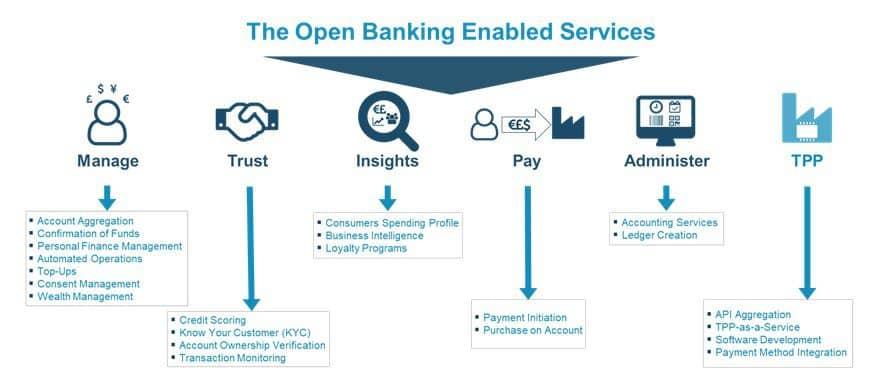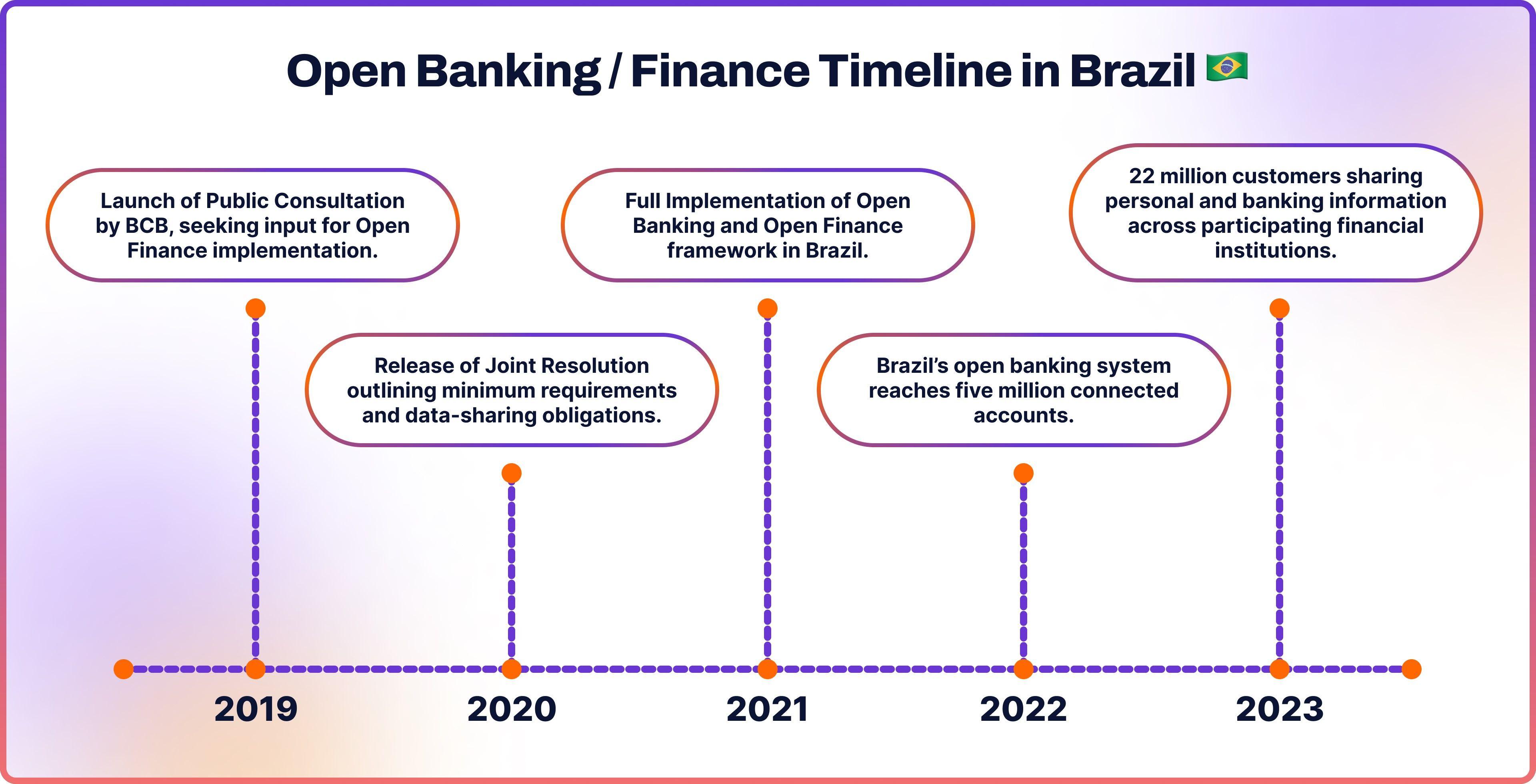In an era where financial innovation shapes the landscape of global economies, Brazil has emerged as a beacon of progress with its pioneering open banking framework. As the United States grapples with its own financial inclusivity challenges and seeks to modernize its banking system, the Brazilian experience presents a compelling case for adoption and adaptation. This article will explore the transformative potential of Brazil’s open banking model, spotlighting its successful navigation of regulatory landscapes and the technological advancements that have led to increased competition, improved consumer choices, and enhanced financial access. By examining how these elements can inspire a new chapter in American banking, we aim to foster a dialogue on the symbiotic relationship between innovation and accessibility in the financial sector.
Understanding Brazils Open Banking Revolution and Its Global Implications
The open banking framework in Brazil has not only transformed the financial landscape locally but has also set a precedent for global banking practices. By fostering a robust ecosystem where financial institutions share customer data with third-party providers (TPPs) under strict regulatory guidelines, Brazil’s model emphasizes transparency, customer choice, and innovation. As a result, consumers are now empowered to switch between services more easily, leading to enhanced competition among banks and fintechs alike. This shift has driven both cost efficiencies and improved service delivery, creating a more vibrant financial marketplace.
Furthermore, Brazil’s experience serves as a vital case study for other nations navigating their own open banking initiatives. The rich diversity of financial players—from traditional banks to nimble fintech startups—demonstrates a harmonic interplay in which the strengths of one can bolster the weaknesses of another. Countries looking to implement similar frameworks can glean insights from key elements of Brazil’s approach, including:
- Consumer Protection: Ensuring that customer data is treated with care and respect.
- Interoperability: Developing standards that promote seamless data exchange between institutions.
- Regulatory Support: Establishing legal frameworks that encourage innovation while protecting consumers.
As the global financial system continues to evolve, understanding the successes and challenges faced by Brazil can guide policy-making and regulatory strategies in other regions, particularly in the U.S. Embracing these lessons could spur a similar revolution, leading to increased access and enhanced economic opportunities for millions of consumers.

Key Lessons from Brazil: Innovation, Competition, and Consumer Empowerment
Brazil has emerged as a global leader in open banking, demonstrating how innovation can reshape the financial landscape. This transformation thrives on a culture of collaboration among banks, fintechs, and regulatory bodies, driving a wave of competition that benefits consumers. Key players in the Brazilian banking sector have embraced the philosophy of open ecosystems, where data sharing is normalized, encouraging new entrants to provide tailored financial products. This has not only harnessed technological advancements but has also spurred a re-evaluation of traditional banking models, compelling established institutions to innovate or risk obsolescence.
Furthermore, the Brazilian experience illustrates the importance of consumer empowerment in financial services. With open banking, consumers are granted greater control over their financial data, allowing them to make informed choices about their banking relationships. As a result, we’re witnessing a shift toward personalized financial solutions that cater to individual needs, preferences, and behaviors. The impact of this consumer-centric approach can be categorized into several key areas:
| Impact Area | Description |
|---|---|
| Transparency | Enhanced clarity regarding fees and services offered by banks. |
| Accessibility | Financial products available to a wider audience, including underserved populations. |
| Choice | Increased variety of financial products tailored to diverse needs. |
Incorporating these lessons into the U.S. financial system could stimulate similar advancements, fostering a more dynamic, responsive, and inclusive banking environment. By prioritizing innovation and consumer autonomy, the U.S. can take significant steps towards creating a more equitable financial sector that not only meets the demands of modern users but sets the stage for future growth and resilience.

Adopting Brazils Framework: Policy Recommendations for a Robust Open Banking Landscape
To foster a thriving open banking environment in the United States, it’s vital to adopt best practices from Brazil’s successful framework. Key recommendations include:
- Consumer-Centric Regulations: Policies should prioritize consumer rights, granting individuals control over their financial data while ensuring robust security measures.
- Interoperability Standards: Establishing common technical protocols will facilitate seamless communication between banks and third-party providers, enhancing user experience and innovation.
- Collaboration with Fintechs: Encouraging partnerships between traditional banks and fintech companies can drive innovation, allowing smaller firms to bring fresh ideas while benefiting from established institutions’ trust.
- Public Awareness Campaigns: Educating consumers about their rights and the benefits of open banking will improve adoption rates and build trust in the system.
To ensure sustained growth and adaptability in the open banking sector, the U.S. could consider the creation of a regulatory body similar to Brazil’s Central Bank, tasked with overseeing fair practices and compliance. A collaborative approach that includes:
| Goal | Action |
|---|---|
| Enhance Safety & Trust | Implement transparent data-sharing agreements. |
| Drive Innovation | Foster a sandbox environment for new technologies. |
| Encourage Inclusivity | Focus on underserved populations to broaden access. |
By considering these elements, the United States can develop a robust open banking ecosystem that not only emulates Brazil’s triumphs but can also set the standard for financial innovation globally.

Fostering Collaboration: Bridging Financial Institutions and Fintechs in the US
To fully realize the potential of open banking, fostering collaboration between traditional financial institutions and fintech companies is crucial. By working together, both parties can leverage their unique strengths to create a more robust financial ecosystem. Financial institutions bring vast experience, regulatory knowledge, and established customer bases, while fintechs contribute innovation, agility, and modern technology solutions. This synergistic relationship can lead to a plethora of new services, enhanced customer experiences, and improved financial inclusivity.
To achieve successful collaboration, it’s essential that both sectors approach each other with an open mind and a willingness to share resources. Key strategies to facilitate this include:
- Joint Ventures: Creating partnerships that combine technology with financing to innovate products and services.
- Knowledge Sharing: Encouraging workshops and forums where insights on technology and regulatory updates can be exchanged.
- Integration Platforms: Developing APIs that allow seamless interaction between banking systems and fintech applications.
| Aspect | Financial Institutions | Fintech Companies |
|---|---|---|
| Regulatory Expertise | Strong knowledge of compliance | Navigating new regulations |
| Innovation Speed | Slower to adapt | Quick to implement changes |
| Customer Trust | Established relationships | Disruptive market entry |
To Conclude
In the quest for financial innovation and inclusion, Brazil has emerged as a beacon of success with its open banking revolution. As we look to the future, the lessons learned from this South American giant offer invaluable insights for the United States. By embracing the principles of open banking—transparency, security, and customer empowerment—the US has the opportunity to not only enhance its financial landscape but also to foster a more competitive environment that benefits consumers and businesses alike.
While the challenges of implementation are significant, the potential rewards are even greater. As the world becomes increasingly interconnected, learning from Brazil’s experience could pave the way for a more dynamic and accessible financial system in the US. The future of banking is collaborative, and by adopting a forward-thinking approach, the United States can harness the power of open banking to drive innovation and improve financial well-being for all its citizens. In this global age, ensuring that we have our eyes wide open to the successes of others may just be the key to unlocking our own potential. The journey ahead is promising—let us take the necessary steps to navigate it together.
